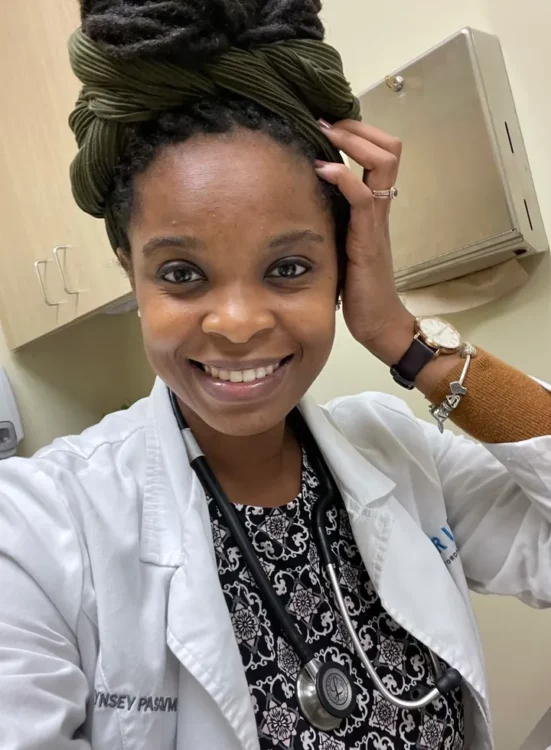I Became A Vet Because I Love Animals. I Didn’t Realize The Color Of My Skin Would Matter.
Share
Explore Our Galleries
Breaking News!
Today's news and culture by Black and other reporters in the Black and mainstream media.
Ways to Support ABHM?
By Lynsey Paschal-Bennett., DVM, Huffington Post
“Veterinary medicine is one of the least diverse occupations in America.”

Ever since I can remember, I wanted to be a veterinarian. My love for animals began at age 5, when my parents gave me and my sisters a miniature poodle that we named Silver. I did my very best to go to every vet visit with Silver because I adored him, and I was curious to see what veterinarians do for animals.
But I noticed something: I never once saw a veterinarian that looked like me at Silver’s veterinary clinic, or any other veterinary clinics or veterinary emergency hospitals.
Each time after these visits, I started to question: “Why have I not seen any Black veterinarians? Why do none of the doctors look like me?” It made me realize that my dream would likely be harder to achieve or possibly not achievable at all, just because I am Black.
Veterinary medicine is one of the least diverse occupations in America. As of 2023, Black veterinarians make up about 2% of the veterinary profession. Minorities may not have exposure to opportunities in veterinary medicine; U.S. colleges and universities of veterinary medicine are not actively seeking minorities, and the lack of minorities in this field also minimizes the opportunities for mentorship for this demographic.
Read about the path she’s carved herself and future dreamers.
Whether it’s in the doctor’s office or on-screen, representation matters.
Find more Black culture coverage here.









Comments Are Welcome
Note: We moderate submissions in order to create a space for meaningful dialogue, a space where museum visitors – adults and youth –– can exchange informed, thoughtful, and relevant comments that add value to our exhibits.
Racial slurs, personal attacks, obscenity, profanity, and SHOUTING do not meet the above standard. Such comments are posted in the exhibit Hateful Speech. Commercial promotions, impersonations, and incoherent comments likewise fail to meet our goals, so will not be posted. Submissions longer than 120 words will be shortened.
See our full Comments Policy here.